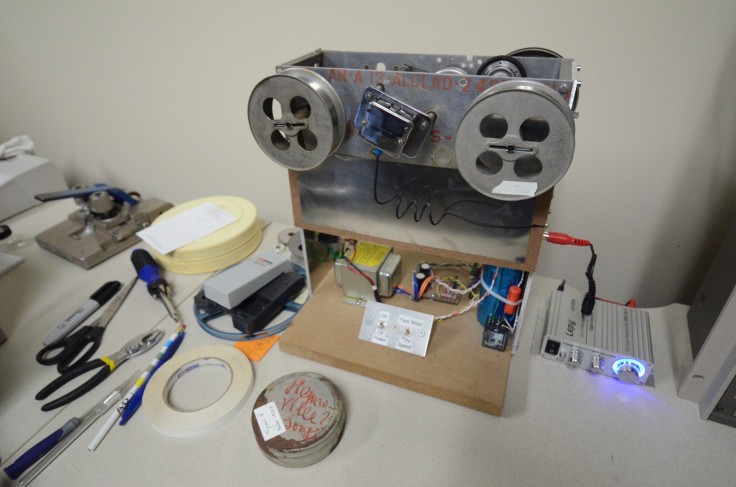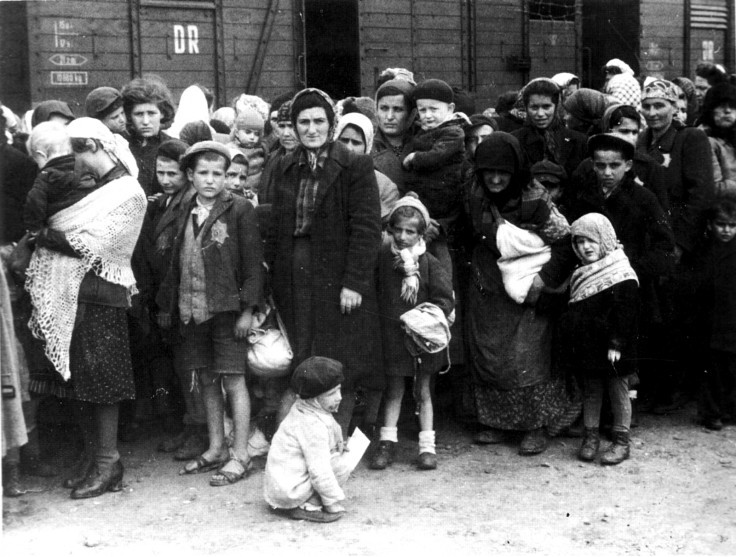Lost recordings of Holocaust survivors' songs from 1946 discovered in mislabelled box
The long-outdated technology needed to play the recordings had to be rebuilt almost from scratch.
Songs sung by Holocaust survivors shortly after their liberation in 1946 can be heard for the first time in more than 50 years, after their rediscovery in a wrongly labelled canister in a university's archives in Ohio, US.
The songs were recorded by psychologist David Boder, who visitied Europe from the US in 1946 to interview survivors of the concentration camps. In 1967 he donated the recordings to the University of Akron, where they gathered dust for 50 years.
Among the interviews was a reel of songs believed to have been lost. On it, interviewees performed songs that had been sung to inspire resistance, as well as songs they were forced to sing by German officers in concentration camps. Boder recorded the songs, performed in Yiddish and German, at a refugee camp in Henonville, France.
"I think it is one of the most important discoveries from our collections in our 50-year history," David Baker, director of the Cummings Center for the History of Psychology, said in a statement.
"The Nazis made the prisoners sing some of these songs as they ran to their forced labour sites and back each day. That we could give the world the melody to a song sung by those sentenced to their death through forced labour during one of the most unspeakable horrors of the 20th century is remarkable."
The recordings sat untouched in the archives for so long because the institute had no equipment that could play them back, Baker said. The recordings had been made using a wire recorder – cutting-edge technology in the 1940s – but there were no wire recorders available that were compatible with the steel wires that Boder had used.
Multimedia producers at the centre began hunting for compatible models, eventually spotting one on eBay. After getting their hands on the remains of the wire recorder, its rubber wheels, bearings and motor had to be replaced to create a stable system for playing back the recordings.
"It felt like I was helping in some way to bring these voices to the present, voices that had become somewhat lost to the historical record," said multimedia producer Jon Endres.

"The discovery of this single canister holding a lost recording means that these songs can be heard again, they can be studied and they can inform us in a new way about the experiences, the joys and the frustrations of these displaced persons."
Digitised versions of the recordings have been shared with the US Holocaust Memorial Museum in Washington, DC.
"These songs, in the voices of those subjected to unspeakable cruelty, are a reminder of the power of memory, the value of history and the indomitable human spirit," said Baker.
"Hearing them sing again after 70 years of silence gives the world a greater understanding of the circumstances and experiences of those who were witnesses to a dark chapter in human history."
Who was David Boder?
David Boder (1886-1961) was a Jewish Latvian psychologist who spent much of his career working in America. He left Latvia after school to study psychology in Leipzig in Germany and later settled in the US.
He did not serve in the military during the Second World War, but wrote a book on Morse Code and wrote articles on wartime psychology. After the war he travelled to Europe to conduct about 130 interviews with displaced Holocaust survivors. They are thought to be the earliest recordings of their kind.
Source: Illinois Institute of Technology

© Copyright IBTimes 2025. All rights reserved.






















